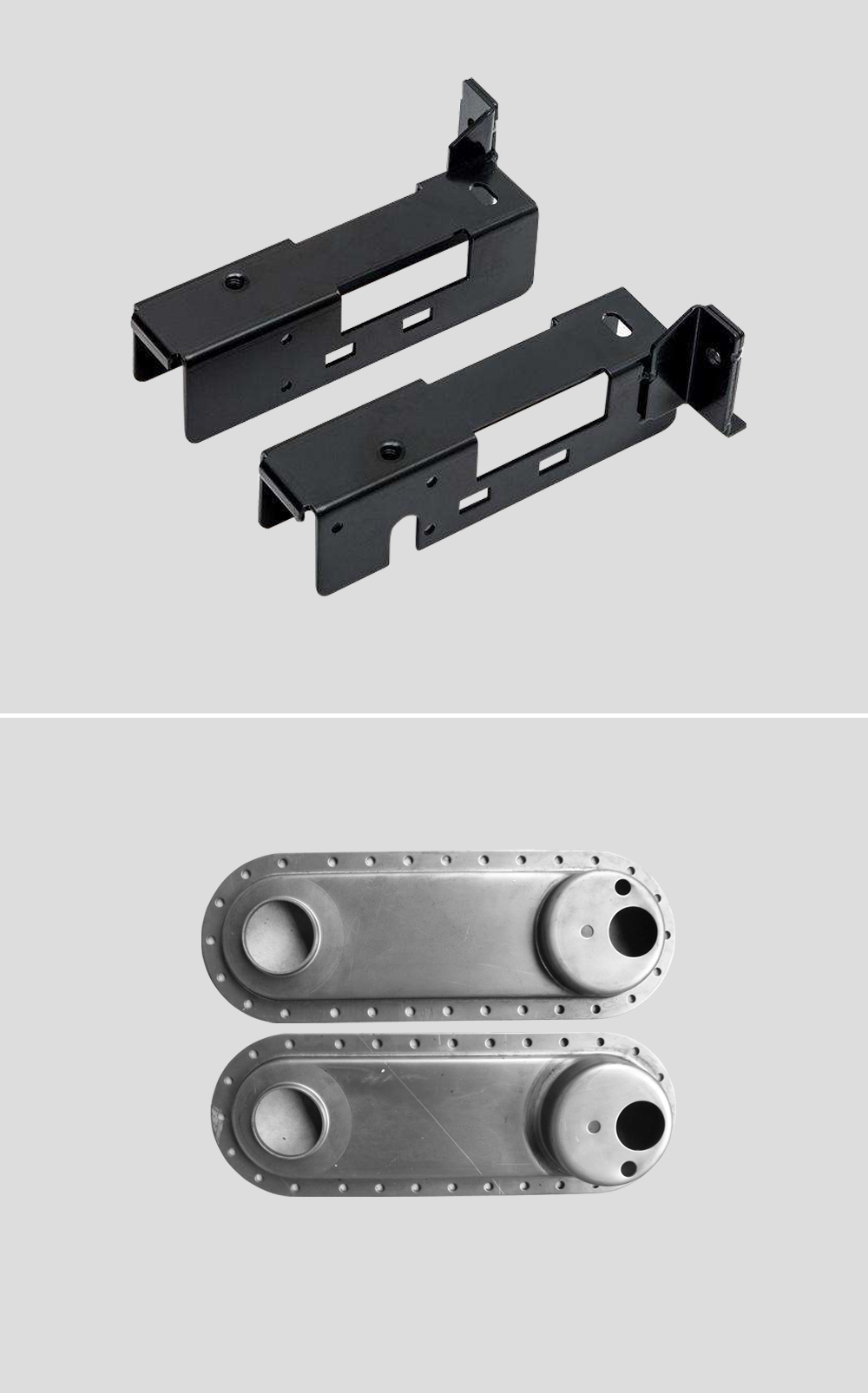Sheet metal & stamping involve cutting, bending, and forming thin metal sheets using high-pressure dies to produce lightweight, durable, and cost-effective components with complex geometries, widely used in automotive, aerospace, and electronics industries.
Sheet metal & Stamping
Technical Features
Sheet metal fabrication involves shaping thin metal sheets (e.g., steel, aluminum, copper) through processes like cutting, bending, punching, and forming. Stamping is a subset that uses dies and high-pressure presses to create precise shapes, often in high volumes.
Key Processes:
Cutting: Laser cutting, shearing, or punching.
Bending: Using press brakes to form angles.
Deep Drawing: Creating hollow shapes (e.g., cans, automotive panels).
Stamping: Dies and presses for mass production of complex geometries.
Applications
Automotive: Body panels, chassis components, brackets.
Aerospace: Aircraft fuselage parts, engine housings.
Electronics: Enclosures, heat sinks, connectors.
Appliances: Washing machine drums, refrigerator panels.
Advantages
Cost-Effective: Low material waste and high-speed production for large batches.
High Precision: Tight tolerances and repeatability with advanced tooling.
Material Versatility: Works with steel, aluminum, stainless steel, and alloys.
Lightweight & Durable: Ideal for strong, thin-walled components.
Scalability: Suitable for both prototyping (small runs) and mass production.

